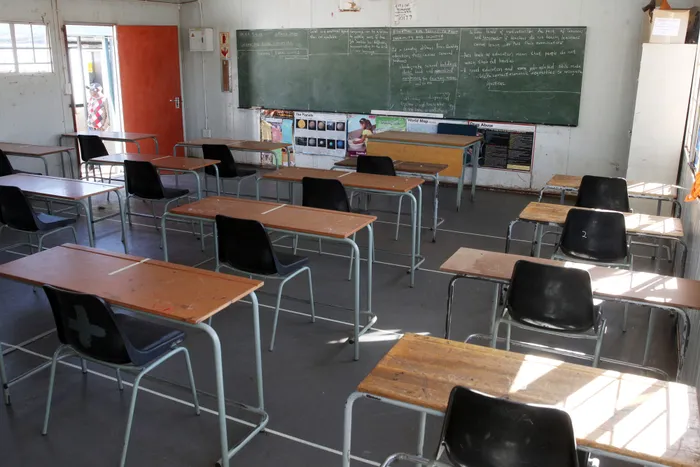Section27 set to appeal cases of two teachers who received ‘lenient’ sentences for corporal punishment

Section27 want the Supreme Court of Appeal to order the South African Council of Educators to review lenient sentences given to two teachers for corporal punishment. Picture: Jacques Naude/African News Agency (ANA)
Pretoria - Section27 is set to appeal to the Supreme Court of Appeal to enforce the ban on corporal punishment after two teachers who injured pupils continue to work after paying "mere" fines of R5 000 each.
This comes after Judge Dawie Fourie of the Gauteng High Court, Pretoria granted Section27’s application for leave to appeal in the South African Council of Educators case, which concerns the actions of the two violent educators who employed corporal punishment in classrooms.
The organisation will now proceed to file papers at the Supreme Court of Appeal in Bloemfontein on behalf of the Centre for Child Law and two parents.
The children of the parents the organisation represents were severely injured by teachers, who, despite pleading guilty to corporal punishment, received sentences from the South African Council of Educators, which have been considered very lenient.
Both teachers were fined R15 000 but only paid R5 000 each because R10 000 of the fines were suspended. They also received another suspended sentence of having their names struck off the roll of educators for 10 years, which means that the teachers are still in classrooms unless they are found guilty of another offence.
Section27 spokesperson, Julia Chaskalson, said: "We would like the Supreme Court of Appeal to order the South African Council of Educators to review these sentences so that these violent teachers are no longer allowed to teach after being found guilty of corporal punishment.
"Judge Fourie initially ruled that the applicants had not instituted review proceedings of these sentences without “unreasonable delay,” as contemplated in section 7(1) of the Promotion of Administrative Justice Act. In our heads of argument for leave to appeal, we noted that the Promotion of Administrative Justice Act allows parties to launch review proceedings no later than 180 days where the interests of justice” require it."
Regarding the organisation's application for leave to appeal, Fourie noted: “I am of the view that there is a reasonable prospect of success. Another court may come to a different conclusion than I did. As a result, both applications should be granted.”
Accordingly, Fourie granted our leave to appeal, as well as the South Africa Council of Educators' cross-appeal application.
After being granted leave to appeal, Section27’s Faranaaz Veriava commented: “Advancing to the Supreme Court of Appeal is an important step towards better accountability for teachers who employ corporal punishment in classrooms. Despite corporal punishment being illegal since 1996, the South African Council of Educators continues to allow teachers off the hook when they are found guilty of corporal punishment.
“We need a stronger institutional response to enforce the corporal punishment ban so that classrooms are safe from violence.”
They believe the South African Council of Educators has in the past sentenced very leniently and ineffectively when teachers are found guilty of corporal punishment, without addressing teachers’ violent behaviour or equipping them with the strategies to implement non-violent discipline in classrooms.
It is the Section27 and the Centre for Child Law's view that stronger sanctions for corporal punishment will contribute to breaking the cycle of violence which characterises many South African communities.
Pretoria News